Expert Advice: All Rise, GPS Entering the Court

In the litigious society that we have become, it is not surprising to see GPS as a regular fixture in many civil and criminal proceedings in our nation’s courts. A new and growing outlet for the legal profession, it has also engaged many of the older GPS pioneers who, instead of just retiring, have found a relatively lucrative way to spend their free time. They now form the cadre of GPS expert witnesses, without whom many of the cases involving positioning could not be settled equitably.
These brave individuals must of necessity remain nameless, because all have signed non-disclosure orders regarding the details of any case they may be or have been working on. Even the public record of adjudicated cases affords but a small peek into the activities of these unheralded witnesses. Most civil cases are settled before trial, often with confidential terms, and many criminal cases plead out, so there is little to find in a search of public records for cases involving significant aspects of GPS.
Civil matters usually fall into one of the following categories:
- misuse or misappropriation of intellectual property (IP), for example, patent infringement;
- liability for accidents; or
- product liability for latent defects.
Criminal matters involve some sort of tracking of suspects or felons, or use of GPS for evidence of an alleged perpetrator’s location at the time of the crime. The use of GPS in these instances comes smack up against the public’s right to privacy. In some states, many of these cases are thrown out for lack of warrants allowing use of GPS tracking, while in other states warrants are not required. In 2007, the 7th Circuit U.S. Court of Appeals held that no warrant was required, as did a court in Wisconsin. But the New York State Court of Appeals found the opposite on a 4–3 vote. It is likely that the U.S. Supreme Court will have to determine if such warrantless tracking of suspects violates the Fourth Amendment to the Constitution.
Patents. Most IP cases involve patent disputes wherein the patent in question in some way uses GPS or is itself a GPS component. An application relating to mapping in a car or the way differential GPS is performed provide examples of the former, while a method for improved receiver signal-processing would be of the latter type. These lawsuits are very contentious because experts from each side will disagree on what to others might seem to be obvious. These experts must opine on the meaning of the claims in the patent, the validity of the patent, and the likelihood that the device in question actually infringes on the patent. The cases are expensive to litigate and take a long time to come to an end. Many are settled just before going to trial.
During the pre-trial process, the expert witness must conduct research, provide reports, and testify in depositions. Early on, the expert will testify before a federal judge at proceeding called a Markman hearing, wherein each side presents his interpretation of the words in the patent claims that are in dispute. It is up to the judge to decide what the words mean. Lawyers refer to this as claim construction and how the claims are “construed.” If the case does go to trial, the experts testify in open court, usually before a jury.
Navy versus Air Force. A civil case well known to me involved whether or not GPS receivers would perform during and after the week-number rollover (WNRO) that occurred in the summer of 1999. This case came about as an adjunct to the hysteria involving Y2K. But it was a real concern to the tracking company and its customers, who had deployed thousands of GPS receivers, some in high-risk areas. They had valuable cargo and people at risk if their GPS failed.
The tracking company asked the receiver manufacturer if the units would operate through and after WNRO. The receiver company really didn’t know and delayed answering long enough that the exasperated tracking company commissioned a U.S. Navy test facility to experiment with a GPS simulator and the receivers in question to see what would happen. In the meantime, the receiver company told the tracking company that the Air Force expected everything to go ahead normally, that is the uploads performed at the Master Control Station in Colorado would continue on the same routine during WNRO as it had in the past, namely at least daily uploads. The Air Force would not guarantee that it would happen that way because its specification allowed for uploads plus or minus three days from the end of the week. As such, the receiver company told the tracking company it couldn’t guarantee the upload would be timely, but not to worry.
The tests by the Navy showed that if the uploads was early or late, there would be adverse consequences. One version of the receiver would stop operating for several days after the upload, and another version would stop operating and never recover. As a result of these tests, the tracking company purchased replacements and then sued the receiver company for the costs, claiming a latent defect in their products. The jury ruled for the tracking company and ordered the receiver company to pay for the replacement receivers.
Crash Course. Another case involved a fatal accident caused by the crash of an automobile company’s test van into an open-structured, desert racing car. The test van had GPS onboard as it was performing experiments. The data showed the speed and location of the van up to the time of the collision, and that was enough to cause a settlement.
GPS has figured in countless cases of property incursions where GPS survey data has been used to prove exactly where one property begins and another ends.
Probably the most celebrated and precedent-setting cases occurred in 2001, when a driver sued a rental-car company because it levied a $450 surcharge when a concealed GPS unit indicated he was speeding while driving the rental car. The judge threw out the case because the rental company failed to disclose that it had hidden GPS unit in the car, and that it had no right to collect a fine for speeding as only a government entity could do so.
Several ongoing cases involve patent disputes about GPS applications and receiver designs, but all are subject to non-disclosure restrictions.
Suspect Tracking. In the criminal arena, a large number of cases involve GPS use to track suspects. That sort of data was used to help convict Laci Peterson’s husband of murder in a recent and celebrated California trial. Today, courts all over America are pondering whether the covert use of GPS tracking is an invasion of privacy and should require a warrant before police can use it.
Authorities use GPS quite openly to keep track of felons, child molesters, parolees, indicted suspects out on bail, people sentenced to home restraint, and so on. Supposedly, in these cases the person has already broken the law so their rights are abrogated. Or, they may have signed an agreement giving consent to such tracking in exchange for their conditional release.
In one instance, a paroled sex offender in Florida was rearrested when the tracking company informed the sheriff that he was not where he was supposed to be. After an examination of the data and with help from Google maps, it was determined that if the tracking company’s data was correct, the parolee had to be traveling at 90 miles per hour across a field where there was no road. He was released forthwith.
Law enforcement routinely uses GPS to locate stolen cars equipped with services such as OnStar.
In Malibu, California, two fishermen were stopped by fish and game deputies and charged with illegal taking of lobsters. The officers had photos and onboard GPS fixes to present in court. Unfortunately for the district attorney,
the wily defense claimed that since magnetic north had moved more than 100 meters since the maps that Fish and Game relied on were made, the maps were not accurate, and therefore the GPS data was inaccurate. The jury did not seem interested in science, the law, or the facts, and it acquitted the lead defendant. His partner chose to plead to a lesser charge and was fined, while the boat owner went free.
Market Outlook. It is highly likely that litigation regarding IP will grow as more companies profit from GPS technology, in many instances not knowing that someone holds a patent on which they could possibly be infringing. Criminal proceedings will increase as well, now that GPS tracking is relatively inexpensive for law enforcement to deploy. Meanwhile legislatures and high courts ponder how to deal with potential violations of privacy and the need for warrants.
LEN JACOBSON is a consultant to the GPS industry and has participated as an expert witness in many cases involving GPS. He is the author of the book GNSS Markets and Applications, published in 2007.


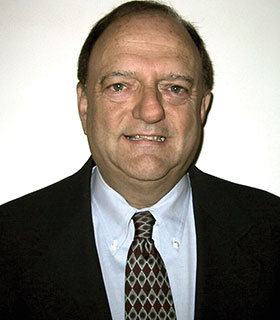

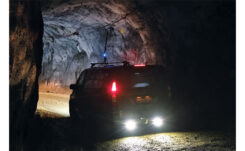
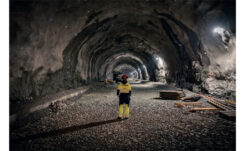
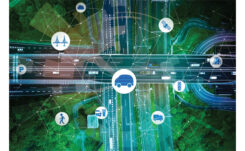




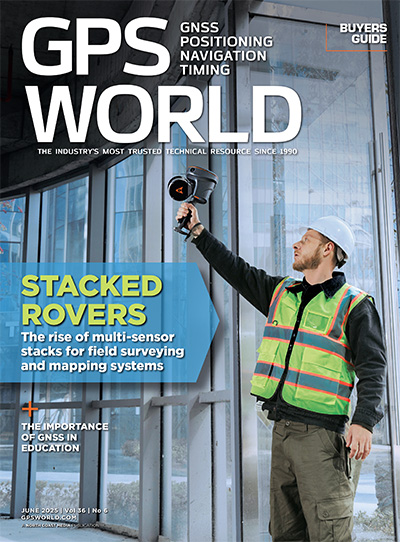






Follow Us